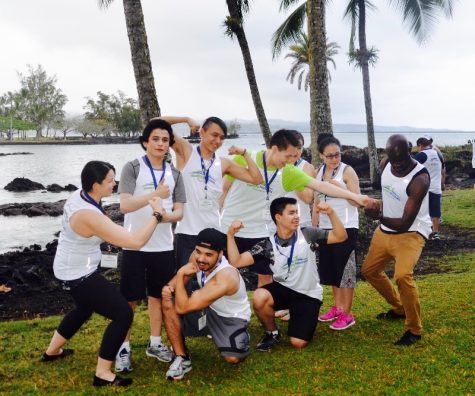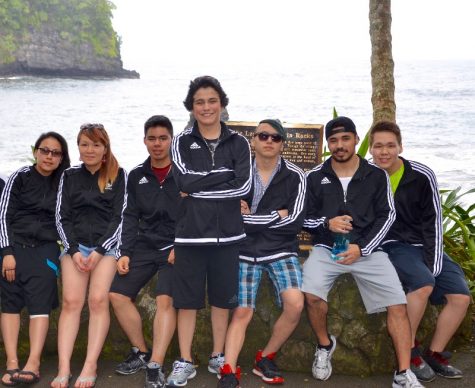There are no roads leading into Salluit, an Inuit community with a population of 1400 located in the far north Nunavik region of Quebec. The Salluit Run Club, the subject of a documentary featured at the upcoming Canadian Sport Film Festival, running June 9-11 in Toronto, is the story of a group of youth who paved their own roads in the region.
The Salluit Run Club is the brainchild of Maggie MacDonnell, a teacher who has worked in Salluit for the past seven years. The recipient of the Global Teaching Award, Maggie arrived in Salluit after seven years working in community development across the globe, incorporating a strong focus on sports and recreation into her work. Both Maggie and her husband Abdullah, who directed the film, are strong proponents of sports as a means to better mental and physical health and to building self-esteem.

Maggie describes Salluit as a community where residents are, “living with the traumatic experience of Canada’s colonial history, including the forced relocation to residential schools.” The community is also characterized by a shortage of 1,000 housing units, resulting in many youth living in overcrowded spaces and experiencing precarious access to shelter.
“We lost 10 youths between the ages of 13-27 to suicide in the last two years,” Maggie says, “and I see it as an extension of their stresses from lack of housing and food insecurity.” Maggie notes that Canada’s Inuit population ranks as the most food insecure indigenous group in the developed world.
The Salluit Run Club was Maggie’s attempt to make inroads to Salluit’s youth and leverage running to help them adopt a healthier lifestyle and change their perceptions of themselves. Those roads have led to Nova Scotia for the Blue Nose Marathon and more recently to Hawaii for a half marathon, documented in the film.
“Two things are happening,” Maggie says. “When you move, you can’t help but feel good, but these runners are also connecting with other young people and building the social supports they need.” In addition to participants quitting smoking or confronting mental health issues, Maggie also mentions that, “Some have even been inspired to return to school after dropping out because they’ve built relationships with those still in school.”

For Maggie, her little experiment reminded her that, “What I love about running is that I can take my super athletes but also work with those at risk of diabetes or struggling with mental health issues and have them all report greater self confidence,” Maggie says.
Maggie hopes that this film will change the narrative around Inuit youth, who are often depicted in crisis rather than seizing opportunities to be physically active and change their lives. She hopes also that the film will illustrate the power of opportunity. According to Maggie, “If you offer youth a healthy recreational alternative that was fun and consistent, a lot of youth want to seize it.”
“They are sources of inspiration and agents of change,” Maggie says of her runners. With their story now public, she already sees them inspiring other youth to pave their own roads to a better life.
The Salluit Run Club is screening at the Canadian Sports Film Festival on Saturday June 10th. More info available here.
- Ravi Singh






 Current Issue
Current Issue Previous Issue
Previous Issue Prior Release
Prior Release
